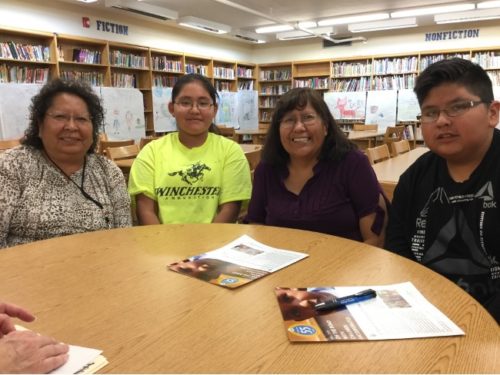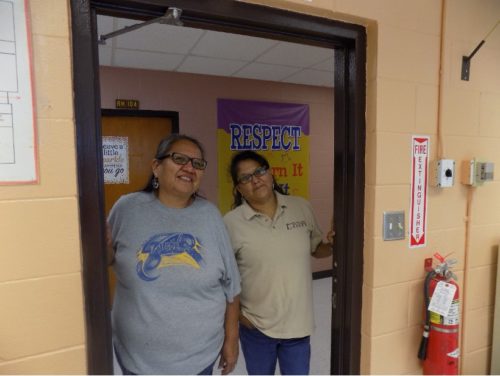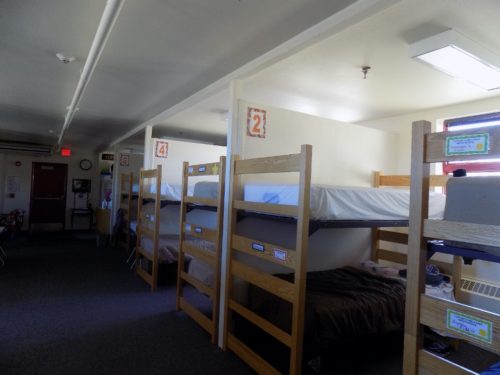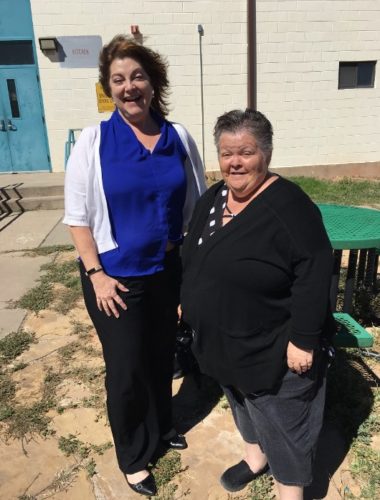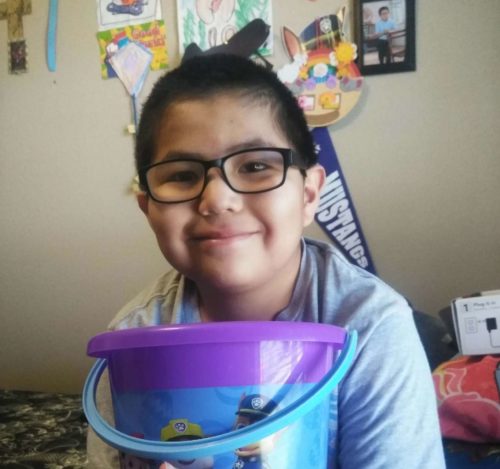Not too long ago, we reported on how our partner, Altar’d State, was able to help our international affiliated sites during the COVID-19 pandemic, thanks to their generous contributions to our many special funds. Today, we have multiple updates to share with you about how Altar’d State also supported our U.S. sites — from Kentucky across the country to New Mexico.
A letter from Renée
In response to the donations made to our affiliated sites in the United States, our Director of U.S. Programs, Renée Kube, wrote the following letter to thank Altar’d State:
Today, we have multiple updates to share with you about how Altar’d State also supported our U.S. sites — from Kentucky across the country to New Mexico.
“Dear Friends,
I want to extend my heartfelt thanks for your generous gift supporting our programs and the health and education of vulnerable children. I had the pleasure and privilege of disbursing the U.S. funds during the year based on appeals and proposals from our volunteer site coordinators from the Appalachian mountains of the rural southeast to the Navajo Nation of the rural southwest. Our volunteer site coordinators were so grateful for the extra support for our special projects, including our feeding programs, Back to School Fund, Warm Clothing Fund, COVID-19 Response Fund, and Hope In Action Fund.
I have included letters from our coordinators expressing just how much your donations have helped them and the children in our sponsorship program.”
A Note from Anita
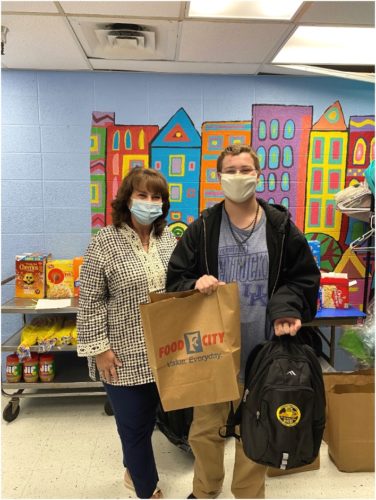
Across the U.S., Altar’d State has helped us provide for students in our program.
Our volunteer coordinator at Betsy Layne High School in Kentucky writes:
“I absolutely cannot thank you enough for the generous gift. My center does a weekend backpack program for several of our students. Many of the students don’t have the resources for extra food and snack, so the program makes it possible to help them. Each Friday, they receive a backpack with milk, cereal, bread, sandwich meat, mac and cheese, and spaghetti to help supplement their meals during the weekend. Your donation is greatly appreciated!”
A message from Delores
At Tohaaili Community School in New Mexico, Delores, our volunteer coordinator, sent this message:
“We send greetings and thanks to you for approving our proposal and making it possible. We wished to provide a traditional Navajo weaving revitalization program to our students and community members, and with the grant funding, we were able to purchase weaving tools that were handmade by a local vendor as well as buy commercial yarn. These efforts on your part are helping us preserve the traditions of our historical home and teach our students new skills that will help them later in life.”
Thanks from Steven
At the Hanaa’Dli Community School and Dormitory in New Mexico, our volunteer coordinator, Steven, says:
“We have a high poverty rate and a lack of infrastructure in the children’s homes here, especially when it comes to access to water. Thankfully, the children are able to live in the dorms on the weekdays and transfer to regional schools — but with COVID-19, we faced some unique challenges.
“Our volunteer site coordinators were so grateful for the extra support for our special projects.”
With your generous gift, we purchased cleansers, disinfectants, and supplies including face masks. It is important for us to be able to provide and maintain well sanitized living spaces as we continue to work to keep our students and their families safe, especially since the Navajo Nation has been hit so hard by the pandemic. We are deeply appreciative.”
***
How do I sponsor a child in the United States?
You can sponsor a child in the United States in one of three ways: call our office at 1-800-538-5381 and speak with one of our staff members; email us at sponsorship@children-inc.org; or go online to our sponsorship portal, create an account, and search for a child in the United States that is available for sponsorship.

